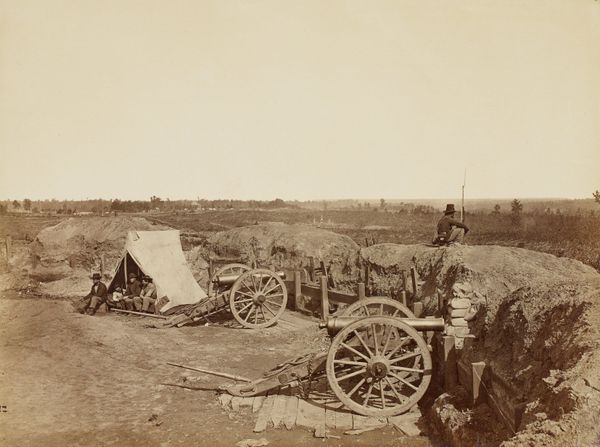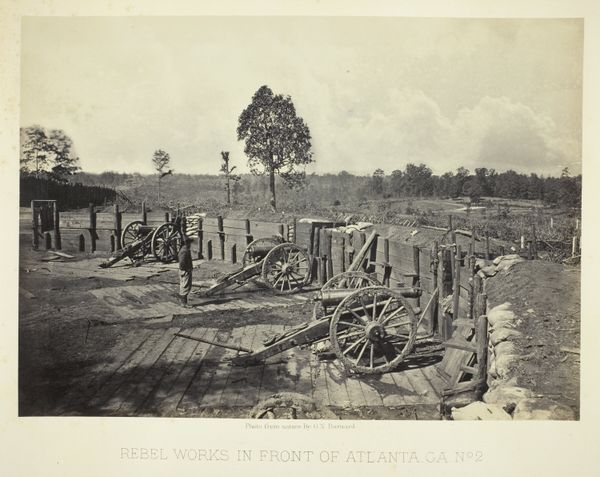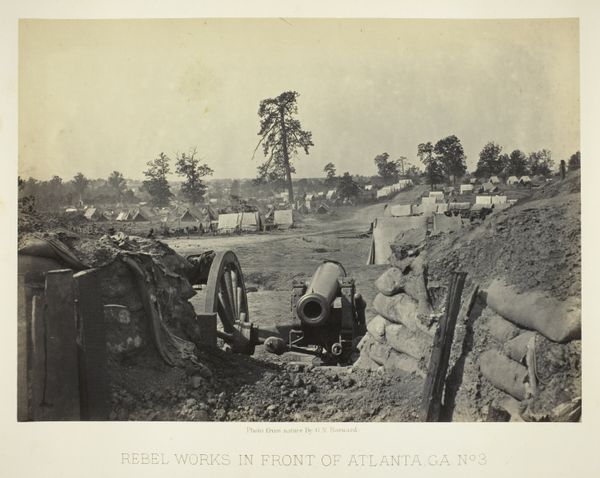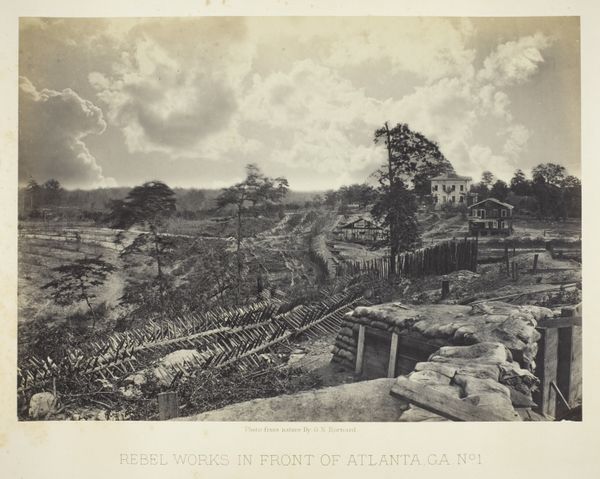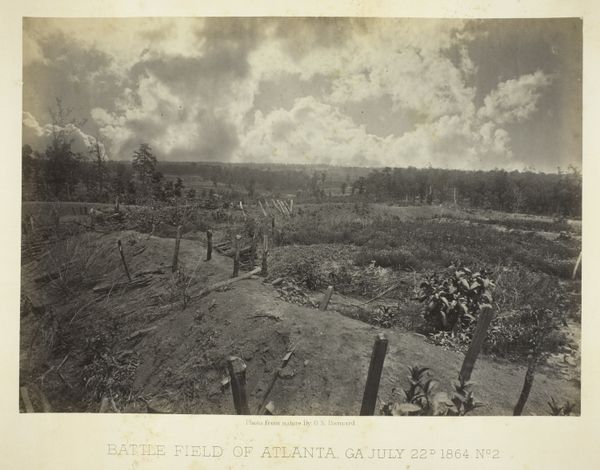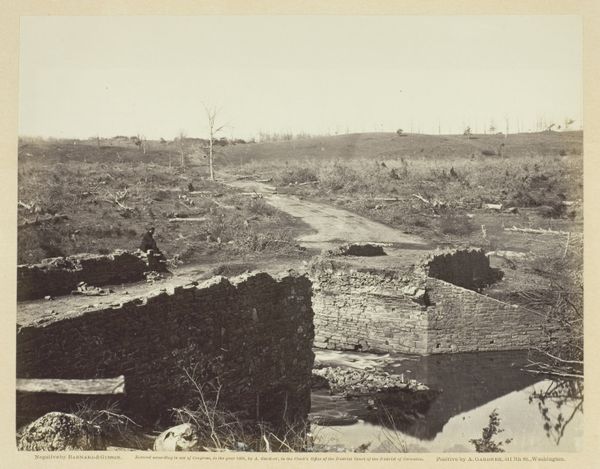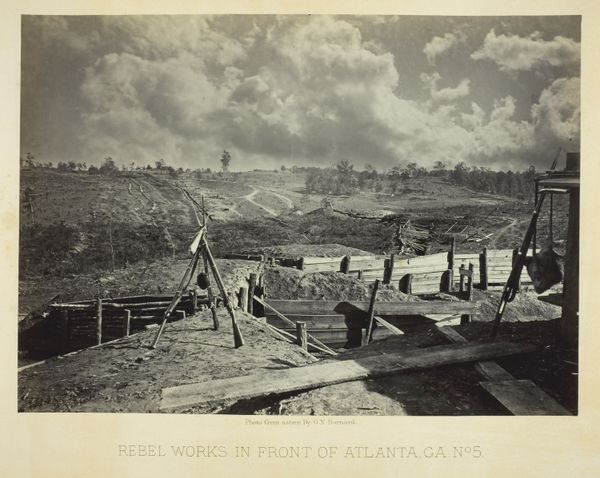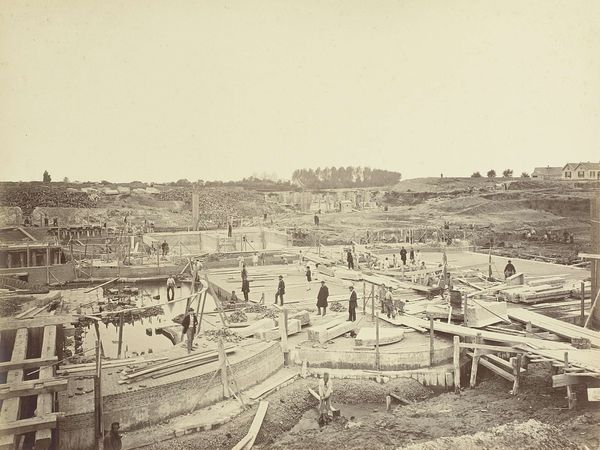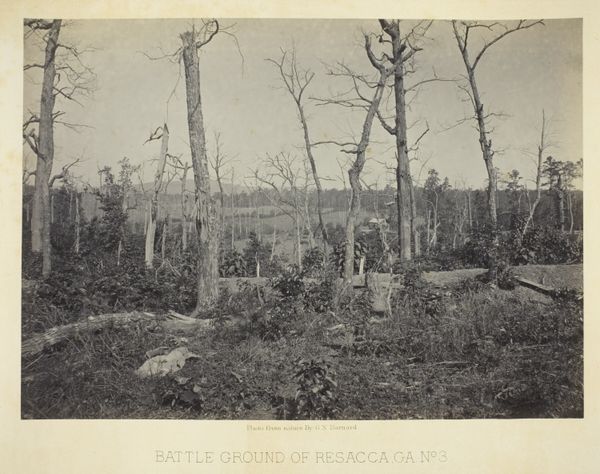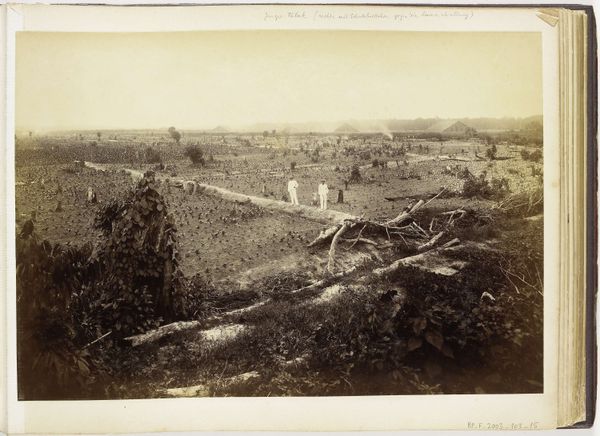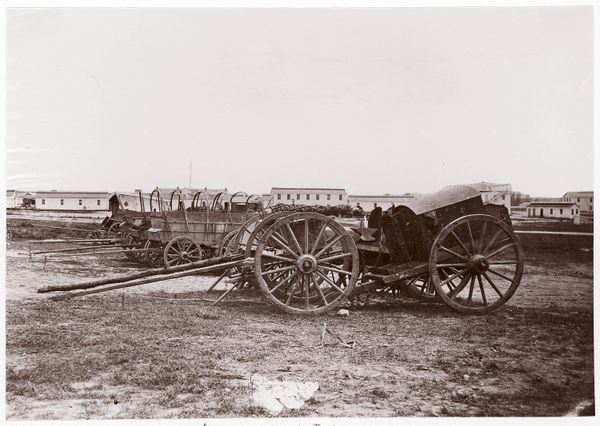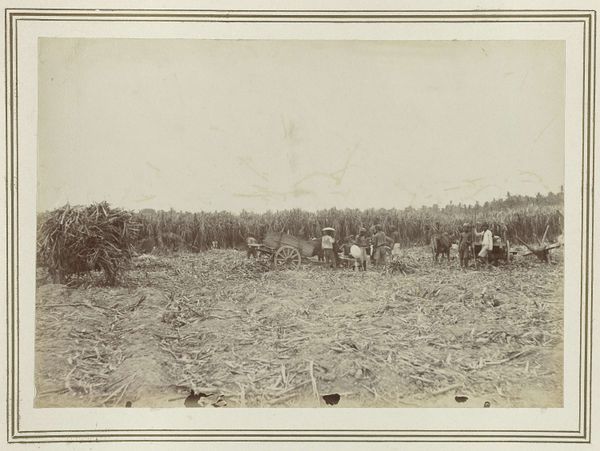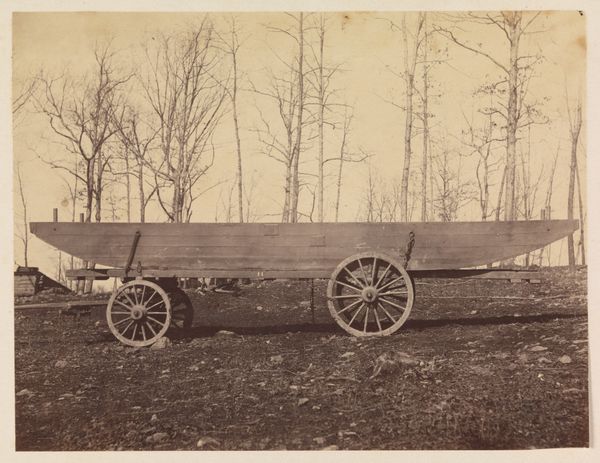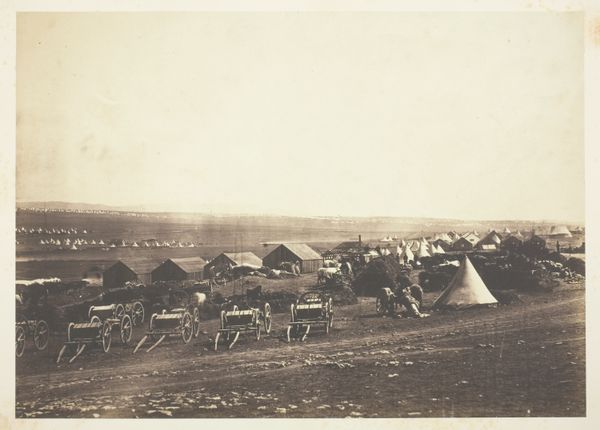
print, photography, albumen-print
#
16_19th-century
# print
#
war
#
landscape
#
photography
#
men
#
united-states
#
history-painting
#
albumen-print
Dimensions: 25.6 × 36 cm (image/paper); 41 × 50.7 cm (album page)
Copyright: Public Domain
Curator: What a desolate landscape. It feels heavy with unspoken narratives. Editor: Indeed. Let me introduce you to "Rebel Works in Front of Atlanta, GA, No. 4," an albumen print taken in 1864 by George N. Barnard. We're looking at a scene during the American Civil War. Curator: The visual language is immediately striking. The cannons positioned behind the earthworks dominate the foreground. What’s intriguing to me is the psychological weight of this composition. The looming threat and the waiting... it evokes a sense of anxiety. Editor: Absolutely. This photograph, a product of its time, provides a glimpse into the entrenched nature of conflict. Consider that "rebel" in the title. The image comes to us freighted with perspective, obscuring so much while seemingly showing everything. Curator: "Rebel" as a label carries significant symbolic weight, representing defiance but also division. There’s a somber visual echo in the muted tones that almost drains the hope, leaving a palpable sense of impending violence. Editor: It forces a critical examination. This image isn’t just a historical document; it is also a carrier of cultural memory. What does it mean to continue showing these kinds of scenes and framing them this way? Curator: Perhaps it’s about understanding continuity. Barnard's work, although depicting a specific moment, resonates with a broader theme of human conflict and the symbolic role landscapes play as silent witnesses. Consider how the Civil War shaped ideas of heroism and victimhood, still prevalent today. Editor: That brings up difficult questions. It highlights how entrenched these loaded narratives are within U.S. history and how carefully we need to examine whose perspective is being prioritized when images are framed like this. What purpose does that iconography serve, especially now? Curator: It urges us to confront uncomfortable truths and appreciate the emotional and psychological impacts that reverberate through generations. It prompts conversations about reconciliation, justice, and understanding historical responsibility. Editor: Seeing this albumen print by Barnard really emphasizes the long, complex history—and aftermath—of violence and power. I see it as a call for continual dialogue and, ultimately, liberation.
Comments
No comments
Be the first to comment and join the conversation on the ultimate creative platform.
